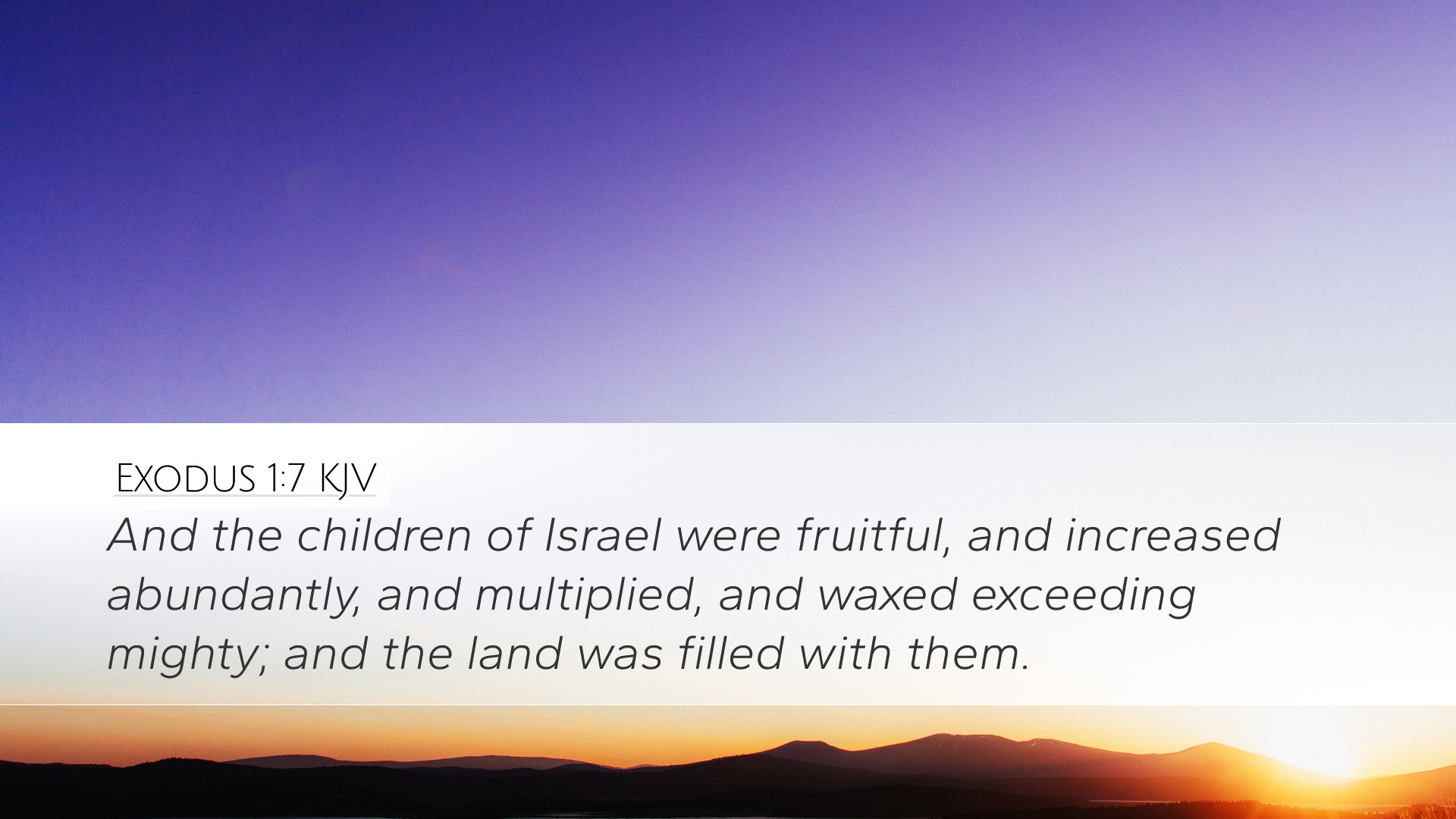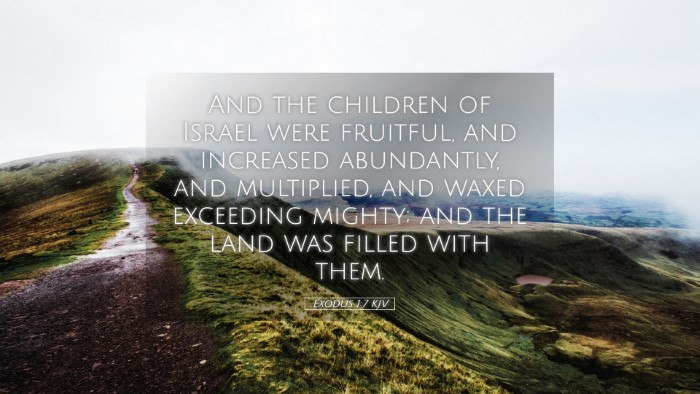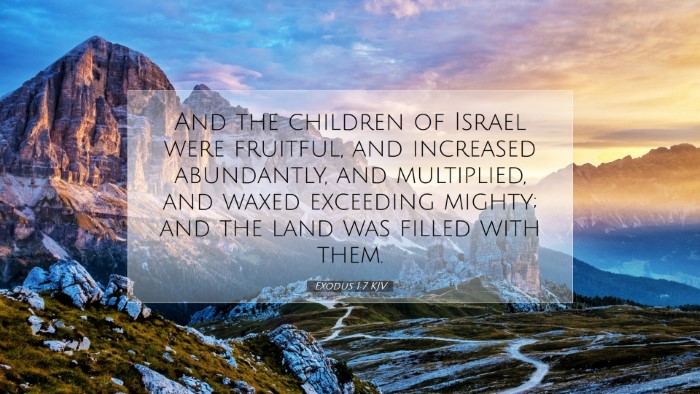Exodus 1:7 - Commentary
Verse: "And the children of Israel were fruitful, and increased abundantly, and multiplied, and waxed exceeding mighty; and the land was filled with them."
This verse sets the stage for the transition from the days of Joseph to the increasing oppression of the Israelites in Egypt. It highlights the fulfillment of God's promise to Abraham, Isaac, and Jacob regarding the multiplication of their descendants.
Significance of the Fruitfulness of Israel
Matthew Henry: Henry emphasizes the active role of God in the prosperity of the Israelites. The phrase “were fruitful” suggests both physical multiplication and spiritual richness. The exponential growth of the Israelites serves to demonstrate God's covenant faithfulness amidst adversity.
Albert Barnes: Barnes notes that the growth of Israel was not merely biological but reflects the divine purpose at work in history. Their remarkable increase is seen as fulfillment of God's promise to make them a great nation. This period of fruitfulness sets the context for the subsequent trials that the Israelites will endure.
Adam Clarke: Clarke elaborates on the nature of this growth, interpreting the term "increased abundantly" as a sign of divine blessing despite the changing circumstances in Egypt. He suggests that, in God's providence, their increase was intended to fulfill a greater plan, including their eventual exodus from bondage.
Theological Implications
This verse not only reflects historical fact but also carries theological weight. It serves as a reminder of God's sovereign control over human affairs and His unwavering commitment to His covenant promises.
- God’s Promises Fulfilled: The significant growth of the Israelites points to God's faithfulness in fulfilling His promises to the patriarchs.
- Preparation for Redemption: The conditions laid out in this verse foreshadow the need for deliverance, setting the stage for God's redemptive work through Moses.
Contextual Understanding
To grasp the full meaning of Exodus 1:7, it is essential to consider the surrounding passages and the historical backdrop: the Israelites had initially come to Egypt in a time of famine due to Joseph’s rise to power. Their subsequent growth becomes a point of contention and leads to their oppression.
Oppression Following Prosperity
While the text shows the prosperity of Israel, it also sets the tone for the suffering that will follow. As the land “was filled with them,” it transitions towards the struggle that will lead to the oppression described in subsequent verses.
- Contrast Between Growth and Oppression: The sudden shift from growth to oppression illustrates the conflict between God’s purposes and human resistance.
- Foreshadowing Future Events: The flourishing of the Israelites serves as a counterpoint to the oppression that arises, emphasizing that God's plans often unfold through trials.
Application for Today
For modern readers, particularly pastors and theologians, Exodus 1:7 carries significant lessons regarding faith, resilience, and the promises of God amidst adversity.
- Embracing Growth in Adversity: Just as the Israelites thrived in a foreign land, believers are encouraged to embrace growth despite challenging circumstances.
- The Nature of God’s Promises: This verse serves as a reminder that God's plans are often larger than our immediate circumstances; He remains active and sovereign regardless of the situation.
- Hope in Redemption: The transition from fruitfulness to eventual oppression points to God's plan for redemption, assuring us of the hope found in Christ amidst our struggles.
Conclusion
Exodus 1:7 encapsulates a powerful narrative of both physical and spiritual growth under divine blessing. It reminds believers of God’s overarching control in history and invites readers to reflect on the interplay between God’s promises and human experience. As articulated by various commentators, this passage paints a picture of hope, resilience, and faithful promise-keeping by God, serving as a theological anchor in the life of faith.


